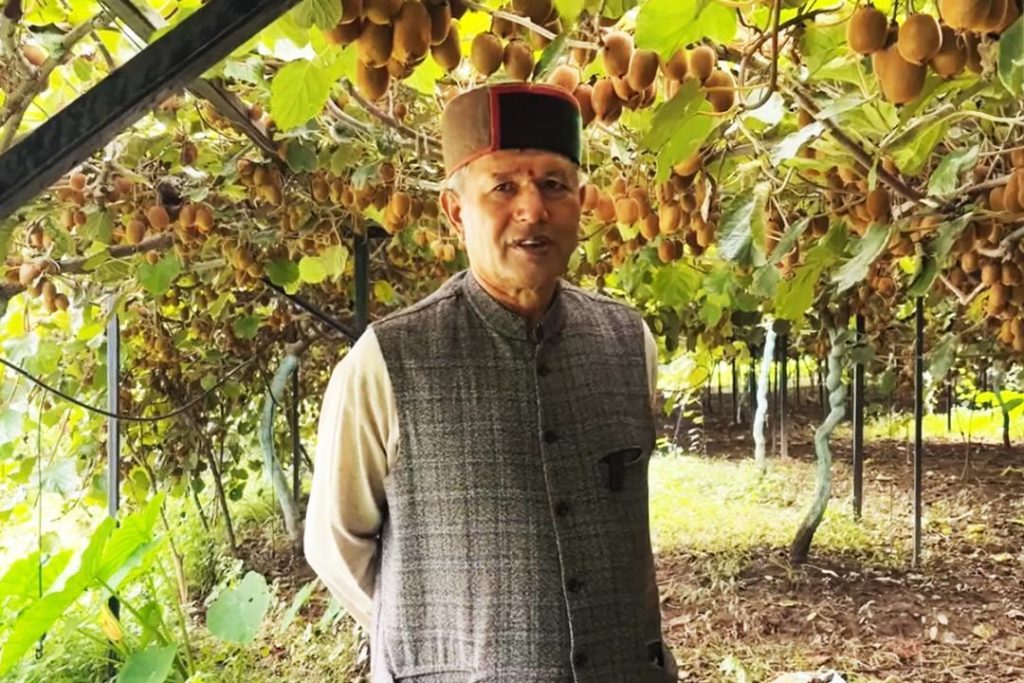
Solan Farmer Earns ₹21 Lakh/Acre with Organic Kiwi Farming
In a remarkable achievement, Pratap Bharnal, a farmer from Solan, Himachal Pradesh, has earned a staggering ₹21 lakh per acre through organic kiwi farming. This is no ordinary feat, especially considering the challenges that come with farming in the Himalayan region. Bharnal’s success story serves as a beacon of hope for other farmers, showcasing the potential of organic farming and highlighting the importance of diversification.
Bharnal, a seasoned farmer, began his journey in 2017 when he decided to shift away from traditional apple farming due to declining rates. He decided to take a calculated risk and explore organic kiwi farming, a relatively new concept in the region. With a small beginning of 100 saplings, Bharnal now has a thriving kiwi farm, boasting 400 plants that yield an average of 52 kg every season.
The secret to Bharnal’s success lies in his commitment to organic farming practices. He uses only natural methods to nourish his kiwi plants, relying on water and cow dung manure to promote healthy growth. This sustainable approach not only benefits the environment but also ensures a higher quality of produce, which is reflected in the prices he commands.
Last season, Bharnal’s kiwi farm harvested a whopping 21,600 kg of kiwis, earning him a staggering ₹21 lakh per acre. This is a staggering return on investment, considering the initial cost of setting up the farm and the ongoing expenses involved in maintaining it.
So, what sets Bharnal’s farm apart from others? For starters, his commitment to organic farming is unwavering. He refuses to use chemical fertilizers or pesticides, which not only harm the environment but also compromise the quality of the produce. Instead, he relies on natural methods to control pests and diseases, using techniques such as crop rotation and companion planting.
Bharnal’s farm is also unique in its diversity. Apart from kiwis, he grows a range of crops, including potatoes, peas, and spinach. This diversification helps him spread the risk, ensuring that his farm remains profitable even in times of uncertainty.
Another key factor in Bharnal’s success is his ability to market his produce effectively. He sells his kiwis directly to consumers, cutting out the middlemen and ensuring that he gets a fair price for his produce. This direct-to-consumer approach not only benefits Bharnal but also allows consumers to enjoy fresh, organic kiwis at a competitive price.
Bharnal’s success story has not gone unnoticed. His farm has attracted attention from fellow farmers, entrepreneurs, and even government officials. His commitment to organic farming and diversification has inspired others to follow in his footsteps, and his farm has become a model for sustainable agriculture in the region.
In conclusion, Pratap Bharnal’s success with organic kiwi farming is a testament to the power of innovation, hard work, and commitment. His story serves as a reminder that, with the right approach, farming can be a lucrative and sustainable profession. As the demand for organic produce continues to grow, farmers like Bharnal will play a crucial role in meeting this demand, while also promoting a healthier and more sustainable food system.






